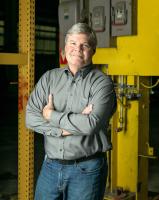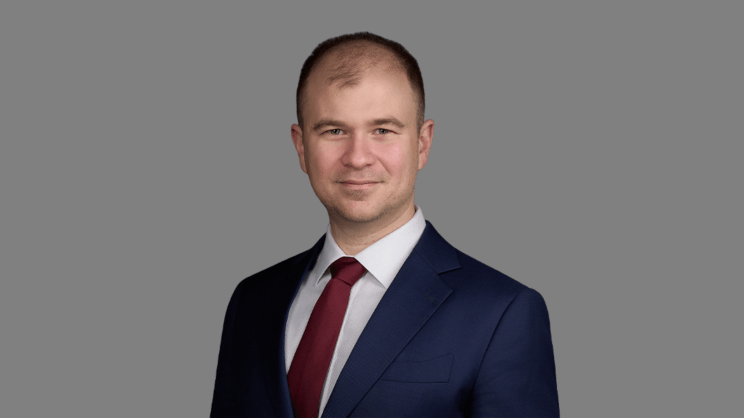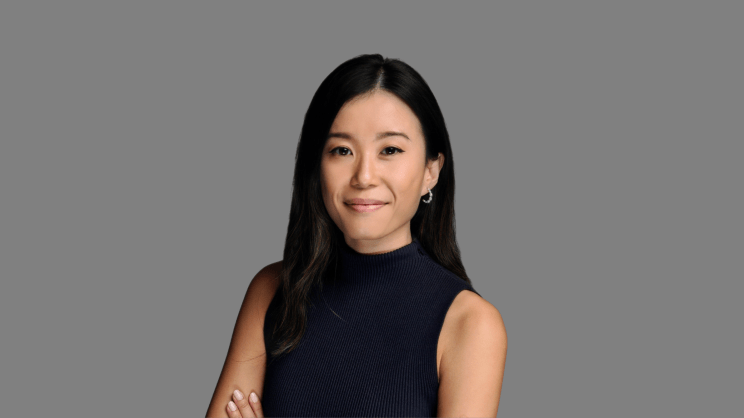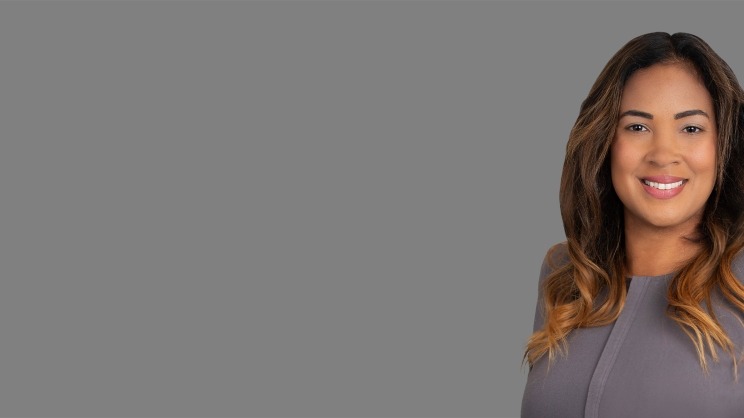Alumni Spotlight: Jeff Smith

Jeff Smith, a former Managing Director with Alvarez & Marsal’s (A&M) Corporate Performance Improvement practice (CPI) from 2004-2014, is currently the co-founder of Work America Capital, a venture capital firm. In this role, he invests in Houstonians and Houston-based businesses. Prior to his time at A&M, Jeff spent 17 years at Arthur Andersen.
During his tenure at A&M, Mr. Smith along with Tom Elsenbrook co-founded the Corporate Performance Improvement practice. Mr. Smith credits Tom with being a wonderful mentor and friend to him before, during, and after their time together at A&M. Mr. Smith also spoke to the strengths and teachings of Tony Alvarez II and Julie Diehl.
Mr. Smith recently launched The Cannon in the new Founders District of Houston. The Cannon is a coworking ecosystem for Houston’s entrepreneurs, small businesses, freelancers, and creatives.
In the following Q&A, Mr. Smith discusses his time building A&M’s CPI practice with Tom, his success to date, his work in the Houston area, and how to remain humble as a leader.
You were with Arthur Andersen prior to your time at A&M. Can you tell me about your time there?
I went to work at Arthur Andersen right after graduating from University of Houston with a BBA in accounting. I spent five years in the audit practice, which I decided to leave right after my promotion to manager. Auditing was great experience, but it taught me that I really did not want to be an accountant. At that time, Arthur Andersen was starting up a new consultant unit led by Tom Elsenbrook in Houston. I transferred to that division and spent the next twelve years of my career consulting with clients and helping build a sizeable consulting business.
How did you wind up at A&M?
Bryan Marsal was hired by Arthur Andersen partners to lead the liquidation of the firm. As part of this process he sold several practices, including our consulting practice, to various entities. After a couple of years in two different consulting organizations, Tom and I agreed to team up and start our own consulting firm. Simultaneously, we were approached by Bryan and Tony Alvarez about building this consulting firm within Alvarez & Marsal as a new division. It turned out to be a great environment and perfect timing, so we launched the practice in early 2004.
After spending 17 years at Arthur Andersen, how would you compare its culture to that of Alvarez & Marsal?
They are culturally very different firms, but are both very positive work environments. Arthur Andersen was a bit more bureaucratic in its hierarchy, while A&M has very low bureaucracy. Arthur Andersen had a gentler, more nurturing culture, while A&M people are a little edgier and walk with more self-confidence, which reflects the nature of the work being done for their clients.
In 2004, you and Tom Elsenbrook founded the CPI practice. What were some of the challenges you faced and how did you surmount them?
The biggest challenge at the time was that we didn’t have any clients or employees. But we did have a high level of confidence, the experience, and relationships to hire great talent and sell to some large corporations based on our prior relationships in Houston. It took us a couple of years to figure out how to go to market as a core part of the A&M brand and when we did, it really helped differentiate us from our competition.
You have had many noteworthy clients over the years. Can you share with us any A&M memories that stand out?
Waste Management Inc (WMI) was a long-time client of mine and one of our first A&M consulting clients. WMI invited us to bid on a large-scale transformation project competing against all the top strategy houses. We were a major underdog to win this work but we assembled a joint team that combined consulting and restructuring, which resulted in us differentiating ourselves and allowed us to win the work. It was the first time I worked in a setting that combined both groups and it turned out very well. We were able to serve the client beautifully and up A&M’s game. Despite being from different practices, there was a lot of mutual respect in which we all became a team to serve the client. It gave me an appreciation for the breadth of capability of the firm.
You were highly involved with recruiting while at A&M. Did you have a favorite question to ask candidates? If so, what was it?
I had a unique style for recruiting candidates, of which I still use today. Before I made an offer, I would paint them a very realistic view of the firm and of what they were getting themselves into. I would tell them every possible reason I could think of as to why they did not want the job. I would then come back to what was special about the firm. This style of advising - by openly sharing the difficulties and challenges about the firm - created trust between the candidates and myself. This style of recruitment doesn’t work for everyone, but I found that it worked very well for me. At the end of our conversation they would have a realistic view of the firm, what it would be like to work there, and what it would take to be successful. It resulted in a high acceptance rate with the key candidates we recruited.
You’ve had an amazing career trajectory. To what do you credit your success?
Several factors come to mind. Everybody in their career needs at least one valued mentor. A good mentor is somebody who has your best interest at heart, will be brutally honest with you, and will be very encouraging. I’m fortunate to have that with Tom Elsenbrook throughout my career.
Additionally, I found a career with consulting that played to my strengths. I’ve always had the ability to sort through information and quickly identify what really matters when others might get lost in the clutter. This, combined with the ability to clearly and concisely articulate my thinking, made a career in consulting a good fit.
In my professional and work life I have always tried to remain grounded and humble, but also walk with a lot of confidence. I’m very straight forward in my approach. Fortunately, that style has worked for building relationships with clients, coworkers, and people I have recruited. There has also been plenty of luck, good fortune and hard work, but not at the expense of sacrificing family.
You have worn a lot of different hats at A&M over the years. Was there a particular role you feel that suited you the best?
During most of my career at A&M I ran the Southwest Region consulting practice, which suited me very well both professionally and personally. We had a large client base in Houston that allowed me to stay productive with clients and recruiting. It was a great environment, and I preferred it over taking on a more national or global role where I would have been more detached from the line and my family.
After you left A&M you planned to retire. But retirement didn’t last long. You co-founded Work America Capital, a Houston Venture Capital firm with Mark Toon, an Arthur Andersen alumnus. Tell us why it’s so important to you to make investments in the Houston area.
I spent 51 years in Houston and retired to the Texas Hill Country. After 30 years, I was ready to do something different. I always knew my retirement wasn’t really a real retirement, more of a half time. I stayed retired for two years until something found me professionally.
I had a very close friend and business partner, Mark Toon, who was headed towards retirement from a Big Four accounting firm. We had worked together at Arthur Andersen and always wanted to do something together professionally. He joined me for golf at Cordillera Ranch and we thought about what we enjoyed the most professionally. We found that to be three things: firstly, we both loved the early stages of building a company where you scrape to get employees and clients. Secondly, we wanted to do something that was purposeful and would make a difference. The city of Houston is way behind as far as supporting a robust entrepreneurial environment. Historically, you had to go to Austin or to the east or west coast to be a successful entrepreneur. So, we wanted to have a hands-on approach to supporting the Houston entrepreneurial community. Lastly, we love mentoring and wanted to help teach the younger generation on how to successfully grow early stage businesses.
The outcome was a venture capital firm that we formed, Work America Capital (WAC), which was initially started with our own money and designed to help entrepreneurs in the early stages of starting up businesses. We began with three companies, but then started a fund that allowed us to expand to a dozen startups which are now currently running as six platform companies. 40 of our friends and Houston business leaders acted as limited partners. WAC maintains control both in terms of the equity position and the board allowing us to have a hands-on approach with growing the businesses. We are currently trying to decide when we want to launch a second fund.
Can you tell us more about one of your investments called The Cannon?
The Cannon is a coworking / flexible work space operation and seed accelerator for entrepreneurs, small businesses, freelancers, and creatives. We initially bought nine acres of land and an old manufacturing plant and converted them into a 120K square foot state-of-the-art coworking and class A office space. We opened our doors two weeks ago and have 150 start-up and early stage companies that are tenants with 340 members. The Cannon building led us to buy an additional 21 acres of land that we call The Founders District. We are developing this area to focus on the technology and entrepreneurial world. Phase two of development will break ground in the next 90 days with a six-acre food and entertainment complex and expanded commercial office area. By the end of our projected timeline in 2022, we will have built an entertainment district, multi-family housing, fitness center, parking garage, hotel, and retail district complementing the commercial office space. This is my first experience with real estate development and it’s been a lot of fun. We are doing nothing cookie cutter and are trying to be innovative with every aspect of the development. So far, the reception has been overwhelmingly positive to the development.
The Cannon has now expanded to a second location in the galleria area and are nearing start-up of our downtown Houston location. We are hoping to extend to 20 locations in the next 24 months throughout Texas and a few other markets outside of Texas. The Cannon creates a special and unique culture for a specific and targeted tenant population. They establish a very vibrant community that people love being around. It is pretty different from the We-Works type of model. Everything they do – from sponsors to programs – are all designed to help their tenant base succeed. It really isn’t about being a coworking space, it’s about fostering a community that allows the tenant to be more successful.
Can you tell us about some of your other investments?
In addition to The Cannon we have invested in several great companies:
- Mainline.gg is a company that is professionalizing e-sports. They offer a full-featured online community and e-sports competition platform powered by proprietary technology.
- Integrated Bionics was founded by a young NASA scientist. The company develops wearable technology products designed to monitor, analyze, and enhance performance.
- 1 Stone Solutions is a cleaning services company focused on construction jobsite and commercial janitorial cleaning.
- VYPE Media is a groundbreaking leader in the promotion and coverage of high school and youth sports.
- TRUSS (formerly FanReact) is SaaS social media technology platform that builds private digital communities where engagement strengthens support, security and a shared passion around a group or interest area.
What’s your favorite aspect of your role at Work America Capital?
There is significant variety in my role at Work America Capital. After thirty years of building, running, managing, and serving big corporate clients, this is something totally different. I’m working with small and energetic entrepreneurial businesses that are far from cookie cutter. They’re all unique and customized, and I’m able to see them come to life. When we opened the doors to The Cannon I was able to see the impact it has on the area with businesses moving there and housing complexes going up.
How do you differentiate yourself from other leaders?
I have always tried to stay very authentic to who I am and refuse to play politics and gamesmanship. I’ve tried to stay humble in my approach. I’ve always hired people who were much smarter than I and tried to provide a great work environment for them and be committed to their success. Their success has enabled my success.
Did you have any mentors while at A&M? Do you keep in touch with anyone?
I had quite a few mentors while at A&M and one of them is Tom Elsenbrook. My relationship with Tom is probably one of the most unusual ones in my life. It’s hard to even classify. On one hand he has been a manager and mentor, and on the other hand he has been a very close and wonderful friend, spiritual ally, and golf buddy. He knows my weaknesses just as well as my wife does. They take my weaknesses and try to support me in those areas, like any good partner would.
Tony Alvarez has also been a mentor and reminds me a lot of myself. I’ve always valued his perspective and admired him. He is very direct, as am I. When we don’t see eye to eye, neither of us is good at giving in. So, Tom has often been tasked with being the peacemaker between us.
Sometimes it’s hard to know if a relationship is a peer or mentoring one. I’ve worked with so many partners at A&M and Arthur Andersen that I respect and admire. I worked with Julie Diehl and her strengths were so different from mine. She is masterful in forging very meaningful client relationships. Her clients simply love and trust her as an advisor and I learned a lot from observing her. I also worked closely with Mark Paling and witnessed how the people who work for him cared for him deeply. Boyd Mulkey has a unique good old boy style that is very disarming and effective in both leading clients and teams. There is so much you can learn by observing the kind of talent you are around every day in a firm like A&M.
What have you learned about consulting in your time at A&M?
I learned about edginess while at A&M. A&M Consultants don’t come in softly and gently into a meeting. They don’t come in with the mindset of building a client relationship. They come in with an urgent intensity toward solving a complex problem. That sense of urgency required some adaptation on my part, as I had spent most of my career prior to A&M working for clients who weren’t in mission critical situations but dealt with more strategic change.
I still care deeply about the firm and the people that are there. I have a daughter and son-in-law who both work at A&M. It’s interesting to see the firm through their eyes.
You’ve been described as someone who is a mentor to others and has had a profound impact on many people. Using 5 adjectives or short phrases, how would you describe yourself?
Direct, transparent, straightforward, loyal, plenty of rough edges and extremely family committed.
You’ll never have to guess what I think; you’ll always know what I think. I genuinely care about the people I work with and lead.
What is the best piece of advice you have given to your children?
Always do what’s right for the right reason regardless of the consequences.
You’re a longtime golfer and golf lover. Tell us why you enjoy it. Do you have any other hobbies you like?
My dad was a very good golfer and put a golf club in my hands when I was two years old. I have played since I was young and I fell in love at an early age. Golf is as much mental as it is physical and it’s a sport you never master. It’s also a sport that allows you to have such comradery amongst friends.
I’m also a huge Houston Astros fan. My kids grew up going to games. My wife is a bigger Astros fan than I. We love our baseball. We see 90% of the games during the season. You will definitely see us at the World Series games this year rooting on a repeat of 2017.
I hear you love to travel. What are some of your favorite travel destinations?
I’ve fallen in love with Ireland and am a member of Hogs Head Golf Club. I also really loved Australia and New Zealand. In Europe I really enjoyed the Amalfi Coast and Sicily. My wife and I love seeing different places and experiencing diverse cultures. This year we’ll be traveling to Scandinavia and South Eastern Asia.
What inspires you?
I am blessed with two wonderful Christian groups, Thursday night couples bible study at Cordillera Ranch and a Sunday School class that both possess very talented instructors and group members. When you get to my age you begin thinking much more about being the kind of person you should be and what you are called to do. I know I can and should always do more to make a positive difference for others. That’s what seems to motivate and inspire me most in this current stage of life.
How do you spend your time outside of work?
We have been blessed with a wonderful network of close friends and community. I enjoy time socializing with good friends and my weekends typically consist of social time, golfing, and staying connected with family and friends.
Do you know someone who would make for a great alumni spotlight? Please e-mail the Alumni Network Team at alumninetwork@alvarezandmarsal.com. Please note that all spotlights are vetted via the division.




